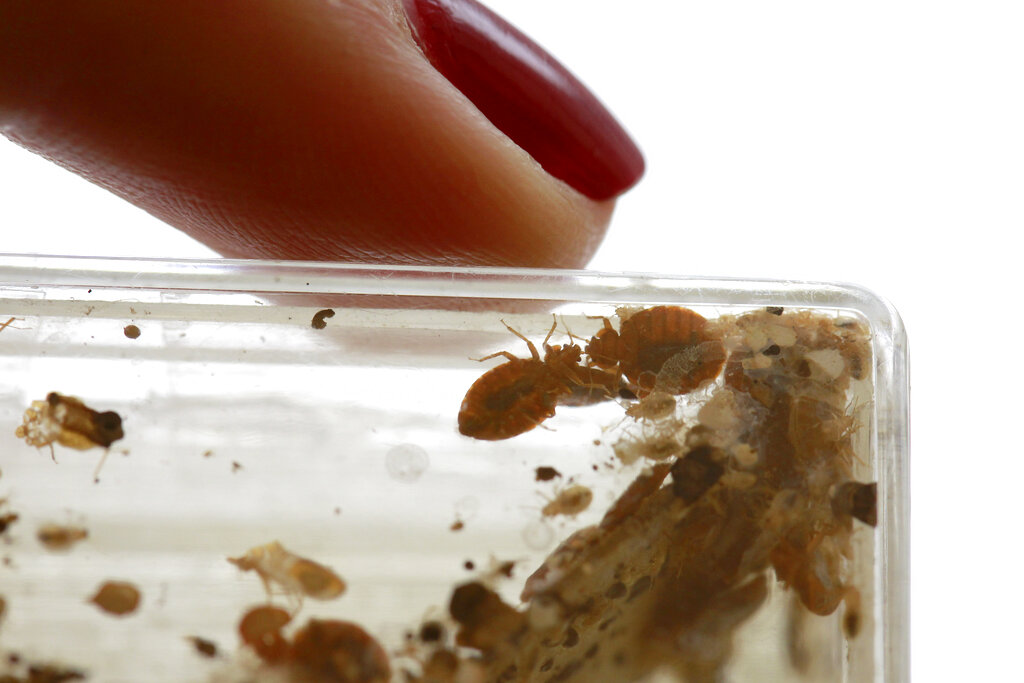It's the city of love and... bed bugs.
From trains to hotel rooms, "no one is safe" from the current bed bug issue in Paris, according to its deputy mayor.
The outbreak comes as the city named one of the world's most popular tourist destinations is in the midst of Paris Fashion Week. In 10 months, the city will host the 2024 Summer Olympics, with the worldwide travel sparking fear the bugs will spread elsewhere to cause further infestations.
Now, Parisians and tourists alike are spreading the word on social media and pondering how to protect themselves from the blood-sucking parasitic insects.
Here's what the experts say.
Where are bed bugs found?
Bed bugs can be found anywhere around the world and are experts at hiding, the CDC says. This is because their slim bodies allow them to hide in the smallest of spaces, where they can live for months without a blood meal.
But they're usually around or near where people sleep, according to the CDC. That includes in apartments, hotels, trains, shelters and more.
In the daylight, they can hide in places like mattress seams, box springs, dresser cracks or any objects around a bed, including behind wallpaper. But at night, they usually travel near a person.
The bugs tend to live within eight feet of where a person sleeps, but they may travel more than 100 feet in the night, the CDC says.

What happens if I get bitten by a bed bug?
A bed bug injects an anesthetic and an anticoagulant when it bites a person, according to the CDC. This prevents a person from realizing they have been bitten, until they notice bite marks anywhere from days to weeks later.
A person's response to a bed bug's bite can range from appearing as a small bite mark similar to a mosquito or flea — like a slightly swollen, red bump or in a straight line — to causing a serious allergic reaction, the CDC says. That would prompt medical attention, though a bite from the insect isn't typically considered dangerous as they aren't known to spread disease.
The bite marks may itch or be irritating, but in some cases, they can cause loss of sleep or anxiety.
The best way to treat a bite is to avoid scratching it, apply antiseptic creams and take an antihistamine, the CDC says.
How do you prevent or get rid of bed bugs?
Everyone is at risk of getting bed bugs if they visit an infested area, but frequent travelers or anyone sharing a bed with others have a higher risk of being bitten or spreading them, the CDC says.
As bed bug issues typically arise after being unknowingly transported by people traveling — due to them hiding in things like luggage seams or folded clothes — the CDC says the best way to prevent bed bugs it to regularly inspect for any signs of an infestation.
In hotel rooms especially, the EPA says to check the mattress seam and headboard cracks before sleeping as well as the luggage racks. It also says to try to keep luggage away from the bed — including in your own home — and away from the floor if possible. Clothes should be unpacked directly into a washing machine upon returning home. The water won't kill the bugs — but the extended time at high temperatures in the dryer will.
Other signs to watch out for include finding their exoskeletons, seeing rusty-colored blood spots from their fecal matter or smelling a sweet musty odor, according to the CDC.
If you discover an infestation, contact your landlord or a professional pest control company experienced in treating bed bugs. They can typically treat the situation by insecticide spraying, the CDC says.
Trending stories at Scrippsnews.com


